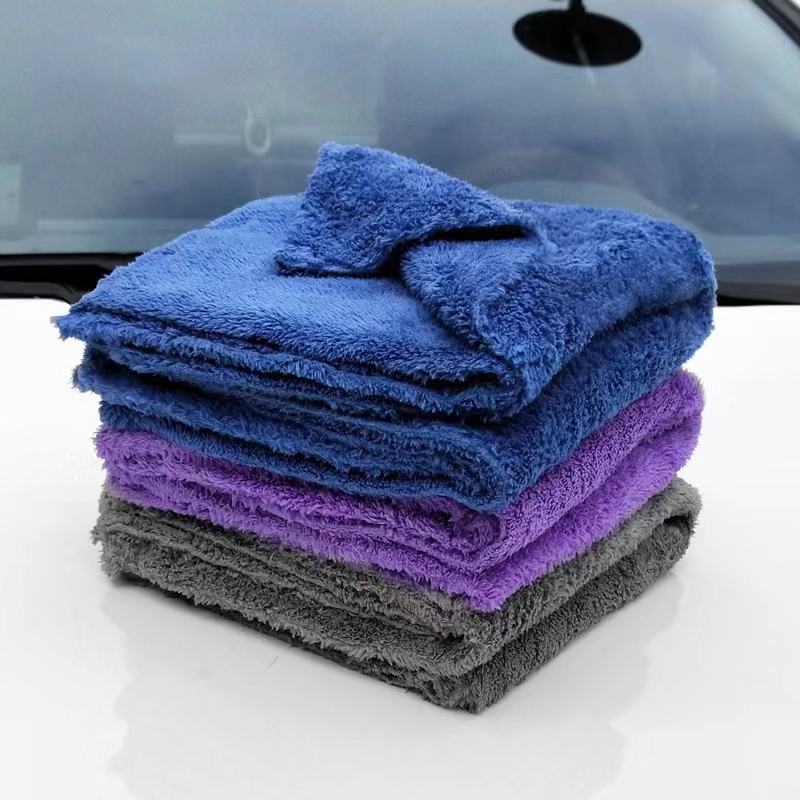Analysis of car towel production process and materials
The production of car towels involves a variety of materials, processes and technologies to meet the needs of different uses, such as cleaning, waxing, crystal plating or interior care. The following are the main processes and key technologies for car towel production:
1. Material selection
Car towels are usually made of the following materials:
Microfiber (80% polyester + 20% nylon): It has the characteristics of super absorbency, no linting, wear resistance, and no damage to the paint surface, suitable for high-end car cleaning.
2. Production process
(1) Spinning and weaving
Spinning: Cotton yarn or microfiber yarn undergoes warping, sizing and other processes to improve yarn strength.
Weaving:
Weft knitting or warp knitting process, such as GPB100D towel cloth uses special knitting needle technology to optimize weight and thickness.
Some towels use double-sided plush structure (such as 600GSM microfiber towel) to enhance water absorption and durability.
(2) Finishing process
Sizing treatment: Use corn starch, butter, talcum powder and other ingredients to enhance the toughness of the yarn.
Desizing oxygen bleaching: Use bio-enzyme alkali-free oxygen bleaching technology to reduce environmental pollution and improve the whiteness of the towel.
Forming treatment: High temperature shaping ensures the stability of the towel size. Some products are also treated with anti-static or flame retardant treatment.
Edge wrapping process: Anti-static clean cloth edging reduces fiber shedding and improves durability.
3. Special functional treatment
Anti-scratch design: Microfiber towels are tightly woven to avoid scratching the car paint.
High water absorption optimization: Some products are specially woven and can absorb up to 8 times their own weight.
Traceless wiping: Towels suitable for crystal plating and waxing are designed without edges to avoid residual water marks.
4. Quality inspection and packaging
Inspection standards: Check indicators such as hair loss rate, pH value, water absorption, and tear strength.
Packaging: Usually single plastic bag packaging, some products are available in gift boxes, suitable for car beauty shops or retail.
5. Application scenarios
Painting workshop: Microfiber wiping cloth is used in high clean environment to avoid secondary pollution.
Daily car washing: Thickened absorbent towel is used to quickly dry the car body to prevent water marks.
Car beauty: Special crystal-plated towel is used for waxing and polishing to enhance the gloss of car paint.
Summary
The production of car towels combines textile technology, chemical treatment and functional optimization to meet different cleaning needs. Microfiber materials have become mainstream due to their excellent performance, and processes such as environmentally friendly desizing and anti-static hemming have further enhanced the market competitiveness of products. In the future, with the development of the car beauty industry, more intelligent and high-performance car towels will continue to emerge.
Post time: May-27-2025


